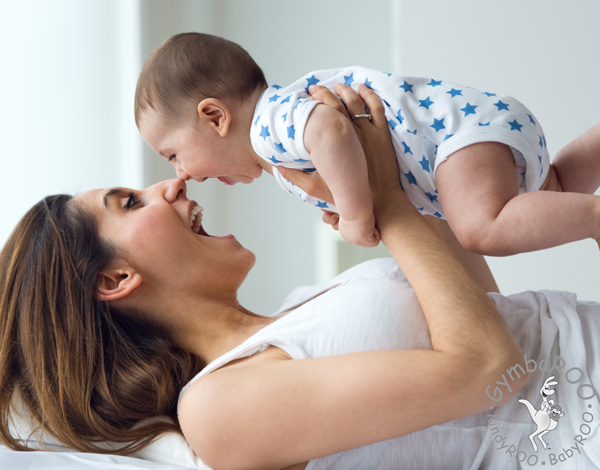Join the thousands of parents already raising smarter, happier babies with our online baby classes: The Active Babies Smart Kids series. Click here.
GymbaROO-KindyROO kids are excelling academically, emotionally, in leadership roles and on the sporting field. Find us at: GymbaROO-KindyROO
Bonding is the unique and close relationship between a child and his parents. The process of bonding happens naturally as the parents take care of their child, but it is not always easy and stress free. The quality of bonding varies. A secure bond provides the infant with an optimal foundation for life, eagerness to learn, a healthy self-awareness and trust and consideration for others. Qualities that we may be taking for granted in adult relationships such as empathy, understanding, love and the ability to be responsive to others are first learned in infancy. An insecure bonding relationship can lead to confusion about oneself and difficulties in learning about self and the world, as well as relating to others.
Bonding usually happens instinctively between parent and baby, but loving the baby doesn’t automatically result in secure bonding. Secure bonding develops from a parent’s ability to respond to their baby’s cues, to help the child through their developmental leaps, provide the right kind of environment to assist him make the most of every developmental leap and to manage the rocky times. Parents can find it difficult to read their baby’s signs and figure out what a child needs. It is impossible to meet a child’s needs one hundred per cent of the time, but as parents get to know their infant and their parenting experience grows, they can feel more confident about reading their infant’s cues and signals and enjoy their growth.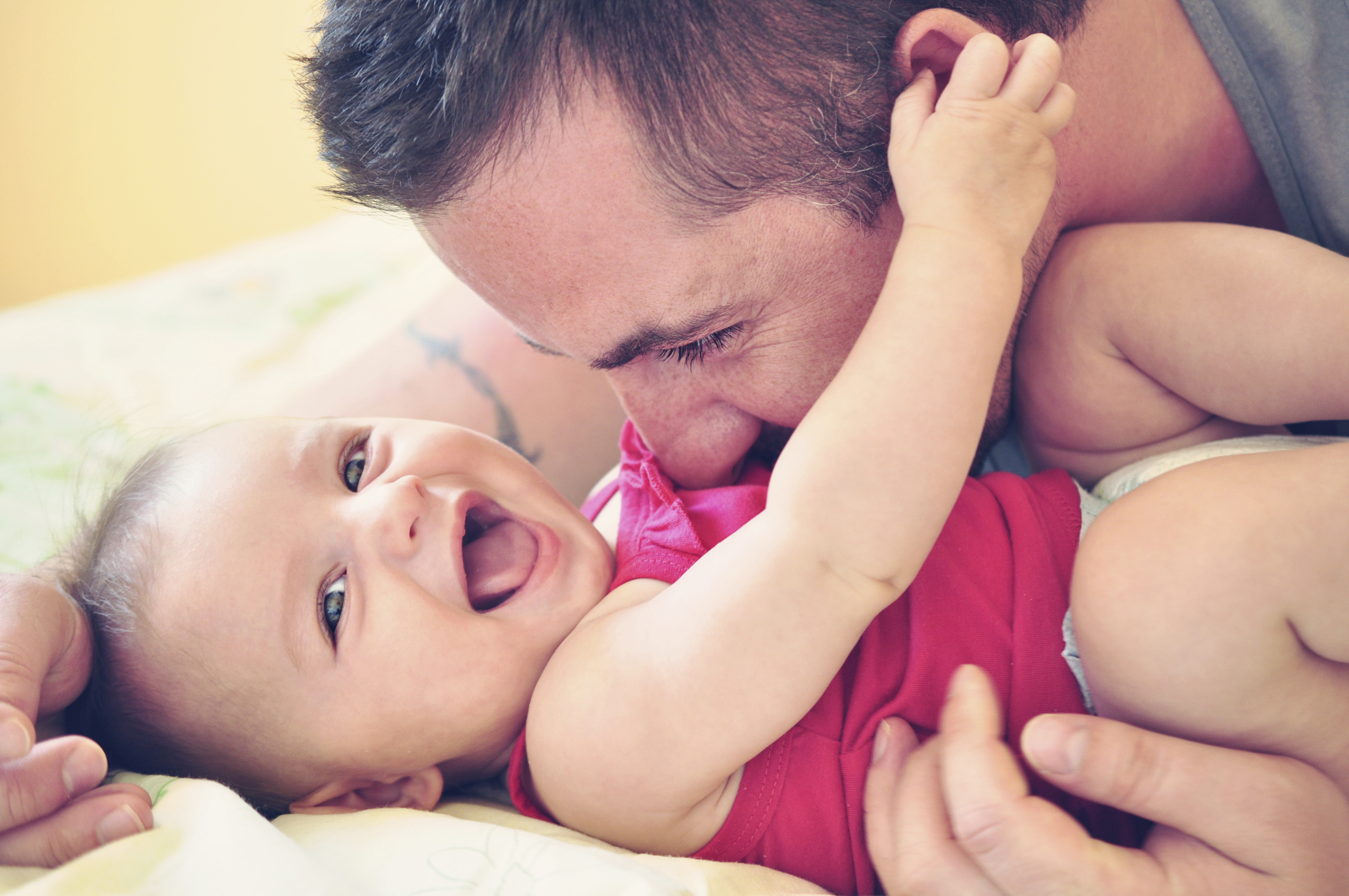 The more we are responsive to the infant’s needs, the less spoiled the child will be as they get older. Bonding creates trust and children with secure bonding tend to be more independent. The most important thing about secure bonding is, that parents realise its importance. Bonding is a two way interactive process where the parent reads the child’s cues as the child reads theirs. The process of bonding needs to be interactive and dynamic. In the first few days of life the baby already picks up on the non-verbal cues, tone of voice, gestures and emotions and sends out signals by crying, cooing, later mimicking facial expressions and eventually smiling, laughing, pointing and even squealing. In return the parent watches, listens to the baby’s sounds and cries, responds to the cues and tends to their needs of food, warmth and affection. Secure bonding grows out of this nonverbal communication between an infant and a parent. In the nineties, an explosion of learning uncovered the fact that this unique bonding is a key factor in children’s physical, social, emotional and intellectual development.
The more we are responsive to the infant’s needs, the less spoiled the child will be as they get older. Bonding creates trust and children with secure bonding tend to be more independent. The most important thing about secure bonding is, that parents realise its importance. Bonding is a two way interactive process where the parent reads the child’s cues as the child reads theirs. The process of bonding needs to be interactive and dynamic. In the first few days of life the baby already picks up on the non-verbal cues, tone of voice, gestures and emotions and sends out signals by crying, cooing, later mimicking facial expressions and eventually smiling, laughing, pointing and even squealing. In return the parent watches, listens to the baby’s sounds and cries, responds to the cues and tends to their needs of food, warmth and affection. Secure bonding grows out of this nonverbal communication between an infant and a parent. In the nineties, an explosion of learning uncovered the fact that this unique bonding is a key factor in children’s physical, social, emotional and intellectual development.
The latest brain studies indicate that our basic nurturing impulses as parents give babies exactly what their growing brains want. “Young children need hours of positive, attentive care-giving. Quantities of quality time help children meet their potential”, says Bruce Perry, MD. Ph.D., a neuroscientist on the forefront of brain research and Senior Fellow at the Houston Child Trauma Academy. 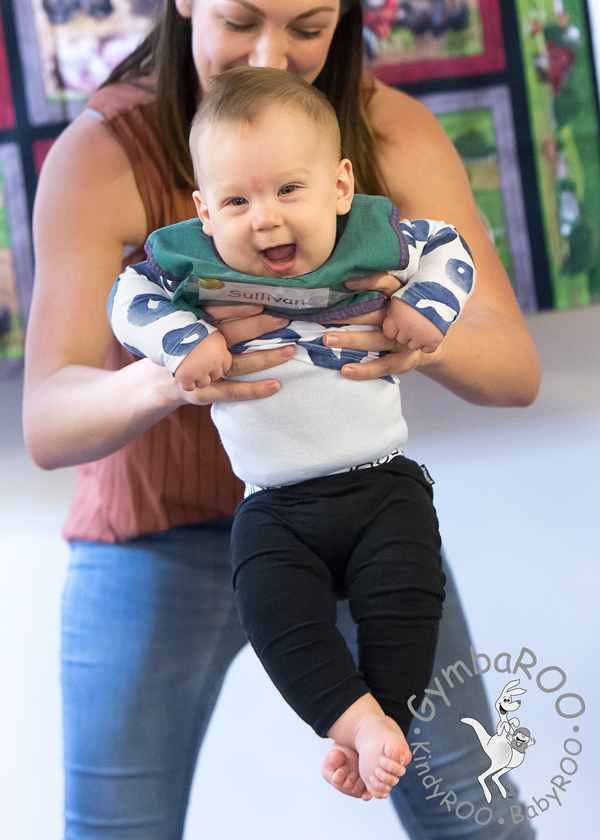
To understand the link between early bonding and brain development, it helps to understand what is going on in a baby’s brain.
We are well aware that a baby’s brain grows most rapidly during the first three years of life. During the first year, brain cells are busy making millions of connections. The connections peak at about one year and in a process called ‘pruning’, they are eliminated if they are not used. The connections that the baby regularly uses are the ones he keeps. Read more: Why active babies make smart kids.
Parents’ efforts to bond with their child, strengthens healthy connections. The more bonding experiences, the stronger it makes the connections. In the absence of some of those experiences, connections are not made. Parents do not always realise just how influential they are to their child’s growing brain. According to Perry, “The most important thing that parents need to know is that their interactions with their infant, toddler and child literally help to shape the biology of their child’s brain. Through simple actions of holding, hugging, rocking, stroking, singing, talking, facial expressions, laughing, reading and playing with their child, they are helping express the underlying genetic gifts of their child.” These actions make the brain produce chemicals and hormones that make a baby grow physically and emotionally. Providing sensory experiences for the infant’s skin, eyes and ears helps the parts of the brain responsible for memory, thought and language to connect and develop. Learn how to play with your baby in the best way for their brain development in GymbaROO’s online series of baby classes here.
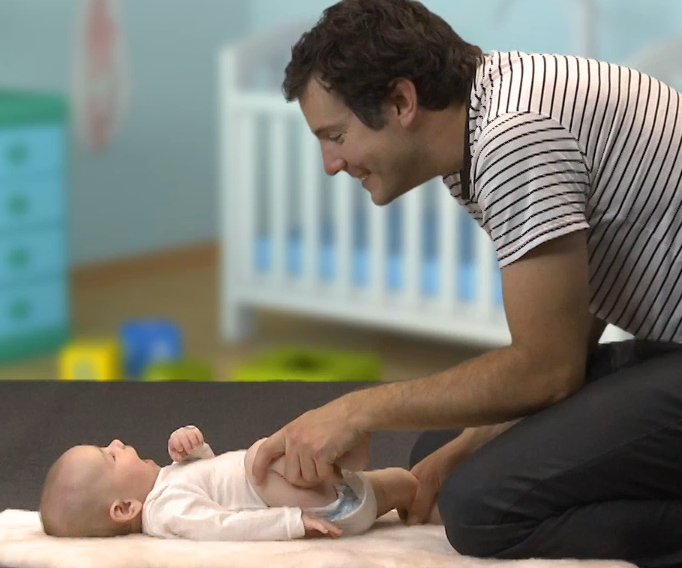
Experts in the field of Child Development warn, that in our attempts to make our children smarter with so-called ‘brain-building’ toys, ‘early learning’ DVDs, computer games and aps, we don’t make sufficient time for the types of personal interaction that promote the best environment for developing brains. Read more: Screen time babes and kids: The latest important information
One of the reasons fancy toys and screen games don’t work is that during the early years a child’s brain is focused on sensory processing. The brain structures that mediate social and emotional functioning begin to develop during this time in a manner that is dependent on interpersonal experiences. Meaningful relationships are essential for this to happen. It’s the parents’ close involvement during normal everyday routines, and the simple pleasures that they share with their children that are the building blocks of brain development. Research has shown that newborns prefer to look at faces rather than toys and infants will hold interest longer when showered with compliments.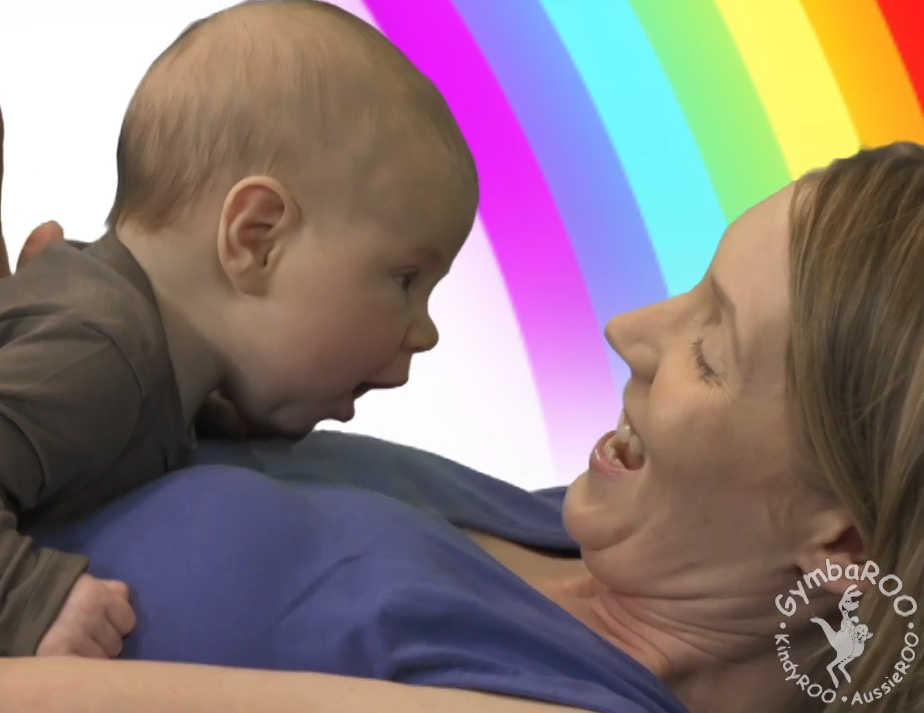
Creating a secure bond with your child takes effort, learning and understanding, sometimes causes fatigue, worry, guilt and frustration, but the rewards of a deep and lasting relationship can be huge for both the child and the parent.
Marianne Schriever is a past school principal, GymbaROO teacher & trainer and early childhood neuro-developmental consultant. References:Hetty van de Rijt, Ph.D & Frans Pllodij, Ph.D.(2010). ‘The Wonder Weeks’ , Kiddy World Promotions B.V. Bruce Perry M.D. Ph.D, (2009). Early Childhood and Brain Development: How Experience Shapes Child, Community and Culture.
Active Babies Smart Kids – Online Baby Classes
GymbaROO-KindyROO’s online series of baby classes is taking the parenting world by storm! It is highly recommended by doctors, paediatricians, early childhood experts and the Maternal Child and Family Health Nurses Association. This series is being called: “The essential guide for parents”. Join the thousands of parents already playing with their babies from birth, in the best way for brain and body development and laying crucial foundations for future learning. What happens in the first year, not only matters, it matters a lot! Enjoy the introductory video below.
Click here: Active Babies Smart Kids online series of baby classes
Try the first episode FREE: Tummy time + baby fun and development class 1
GymbaROO-KindyROO
Thousands of parents, babies and children are presently involved in our programs and creating rising stars. GymbaROO-KindyROO kids are excelling academically, emotionally, in leadership roles and on the sporting field. Come join all the fun and learning! “GymbaROO – The best decision I ever made for my child.” Classes from 6 weeks old – 7 years GymbaROO KindyROO
Enjoy the following GymbaROO-KindyROO articles
GymbaROO-KindyROO: Who, what, where, why and how
All about GymbaROO-KindyROO’s online baby classes for parents and babies: Active Babies Smart Kids
How to raise a smarter, happier baby
Dad and baby bonding – It’s never been easier! Three bonding activities for dad and baby.
Baby milestones: A journey, not a race.
Why creeping and crawling matter.
Important reasons not to walk your baby by holding their hands.
Doing this for ONE HOUR during pregnancy will make a massive difference to your baby’s intelligence.

